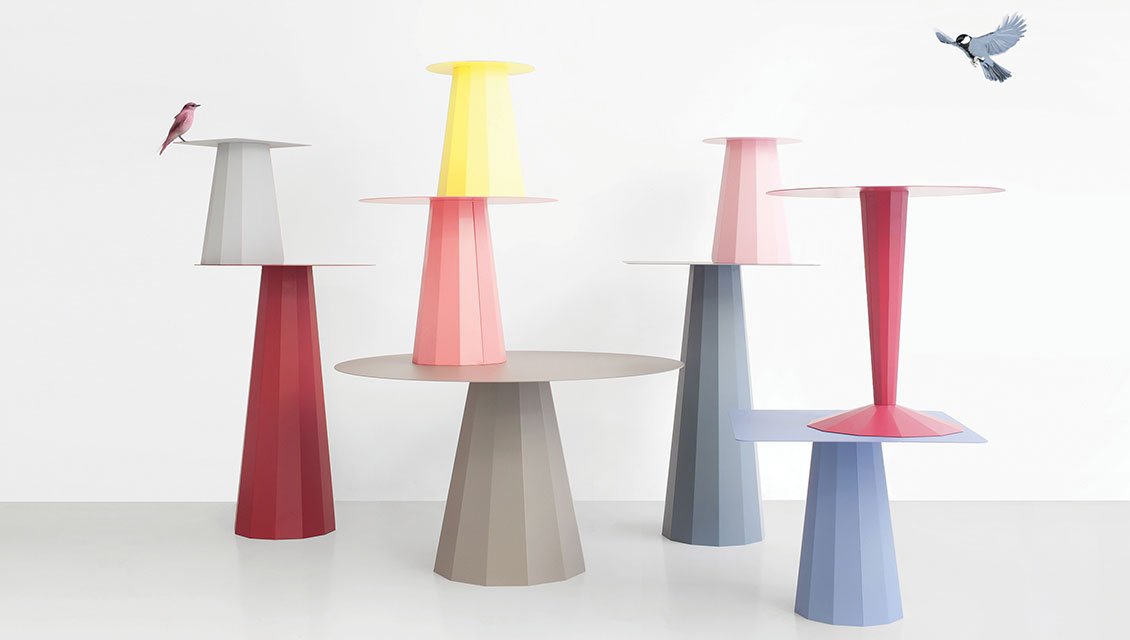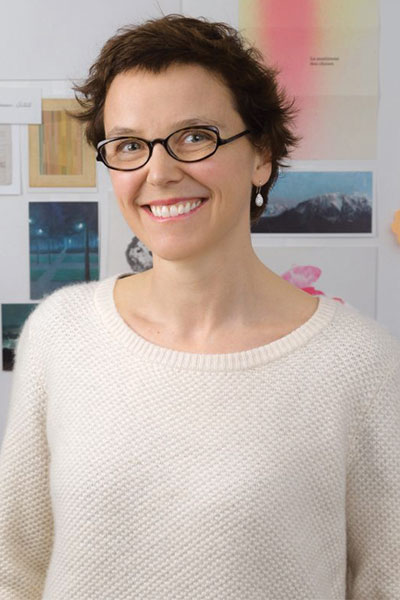DE-LIGHT-FUL
From designer objects to interior design, via stage design for ballet and exhibition installations, this young woman constantly aims to arouse emotions and to change perceptions through her lavish inspirations.


Inspired by a strong artistic sensibility, Constance Guisset began her career as an administrator at the Nelson art gallery and then went on to work at the Bouroullec brothers’ studio.
Her personal development, through creation and the poetry of design, led her to enrol in the National School of Industrial Design, from where she graduated in 2007.
After she won the 2008 Paris Grand Prix of Design and the 2010 Audi Talent Award, the Museum of Decorative Arts staged an exhibition of her work in 2017. This showcased her highly individual approach which incorporates experimental research, esthetic considerations and pure creation.
However, at the outset, there was no indication that this bright ESSEC Business School student would become a designer, apart from her desire to work using both her brains and her hands. This, and the driving force that has inspired her since childhood: the desire to understand what goes on behind the magic, to understand the manufacturing process of a product as well as its history and its uses.

Meet one of the most influential figures of French design.
At the start of your career, you designed the Vertigo lamp that requires no introduction. Is Constance Guisset an iconic designer?
Constance Guisset: If the lamp is considered “iconic”, can we say the same about the designer? What I do know is that I am really happy about the success of this product, that no longer belongs to me, but to every one of its users. It is amazing to see how each person embraces it.
You have a multi-disciplinary approach to your craft. In what way does interior design differ from product design?
C. G.: Visualizing a space is different from designing a single object. You need to work on the whole atmosphere, understand its components, find the balance and blend into the space just like a fish in an aquarium.
How important is it for you to bring a touch of imagination to daily life?
C. G.: Too often we just make do in terms of our daily lives. The way that manufacturing works means we have to just accept
the fact that floorboards, for example, are cut at right angles. I think my work does the opposite of that. We can surround ourselves with objects that are a bit different, we can create an element of surprise, things that make you sit up and take notice, that bring pleasure and endless fascination.
Stage design is a large part of your work. How do you get to grips with creating the necessary magic?
C. G.: Stage design is a completely different field: you have to make the space work in order to bring the content to life, to meet the requirements of a choreographer, a commissioner or an artist's content. Discussions and close cooperation are essential. I am constantly asking myself questions about the rhythm, the timing, the impact. I’m basically trying to create a gateway to another world.
Ballet, exhibitions, hotel rooms… what inspires you the most?
C. G.: Each project has its own character and its own charm. What’s more, they play off each other. For example, the all-paper stage design I created for Angelin Preljocaj’s staging of Genet’s “The Tightrope Walker” led me to create a lamp called Angelin. It’s impossible to choose. An encounter might inspire me, or a particular subject, or even a moment.
Have you ever considered designing a public area?
C. G.: Public areas are quite distinct spaces. It doesn’t matter if it is a hotel or the entrance hall to a museum, I always enjoy creating something welcoming, something light and airy. My dream is to design a restaurant which is probably my next project, and also a station ticket hall.
Photo credits: Constance Guisset


